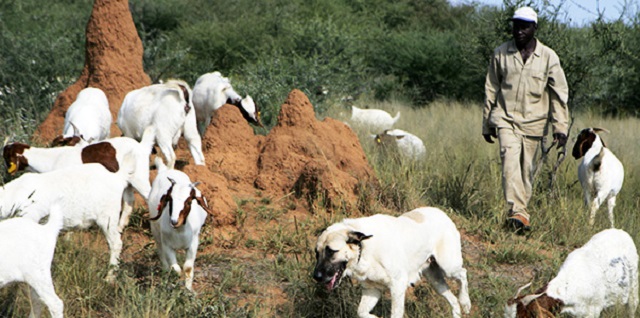
The Sunday News

Mhlupheki Dube
IF you interact with communities in Matabeleland North on issues to do with livestock, you are almost definitely going to notice a common feature that persists among various districts of the province.
This is the human wildlife conflict with humans on the receiving end from my own assessment. Livestock farmers lose their animals almost everyday to predation, be it nocturnal or diurnal predation.
This is something that really needs to be analysed and a practical and relevant solution found. Farmers do not just lose livestock, they hardly harvest anything because of wildlife foraging on their crops coupled with recurrent droughts.
In my simple analysis the challenge is that natural resource management puts more emphasis in aesthetic preservation and very little attention to the opportunity cost being incurred by farmers adjacent to these protected areas.
If only conservationists could try to answer the simple question in natural resource management which asks whose burden it is to carry and for whose benefit. What is obtaining is that livestock farmers adjacent to protected areas carry the burden of hosting such giant ecosystems but they hardly get rewarded for the losses incurred thereof.
The human wildlife conflict is actually more than predation but encompasses disease transmissions and loss of grazing lands.
Farmers in areas with the endemic Foot and Mouth Disease have difficulties in trading in their livestock as they get livestock movement bans now and again due to disease outbreaks.
Now how are people supposed to survive if they are keeping wildlife which does not benefit them, if they are rearing livestock which they constantly lose to predation and the few that survive to maturity cannot be sold due to disease control movement restrictions? Isn’t this equal to being imprisoned in your own community? My take on this is that there has to be a practical recourse and compensation mechanism that addresses these losses. Livestock producers and farmers in general will continue to feel detained by these protected areas in their environs.
It is now accepted that the Communal Areas Management Programme for Indigenous Resources (Campfire) which was designed to address such issues was by and large a failure but further consideration is needed to refine the programme and make it address these challenges which are not about to go away any time soon.
Livestock farmers in these areas should not only be made to take active roles in conservation but must also take active roles in resource sharing.
In other words, communal farmers in these areas should have shares in terms of hunting quotas in the conservancies operating in those areas. If hypothetically speaking a conservancy around Jambezi area has a hunting quota of 10 elephants, at least three can belong to the local community.
Why would State enterprises have hunting quotas of up to around 14 when affected communities do not have any? It’s about time conservationists and powers that be put a human face to conservation. This purely extractive and indifferent natural resource management which is derived from colonial hangover cannot be allowed to persist in modern day civilisation.
Devolved and localised solutions to human-wildlife conflict resolution need to be found by simply answering the question what or how are the livestock farmers benefiting while facing all the challenges visited to them by the existence of a protected area in their locality?
It’s not right for someone sitting in some head office somewhere to be spoiling himself from the proceeds gained at the direct material loss by livestock farmers. A win-win not win-lose approach has to be adopted to solve the human-wildlife conflict.
It’s the right and correct thing to do. Uyabonga umntakaMaKhumalo.
Feedback [email protected] cell 0772851275



